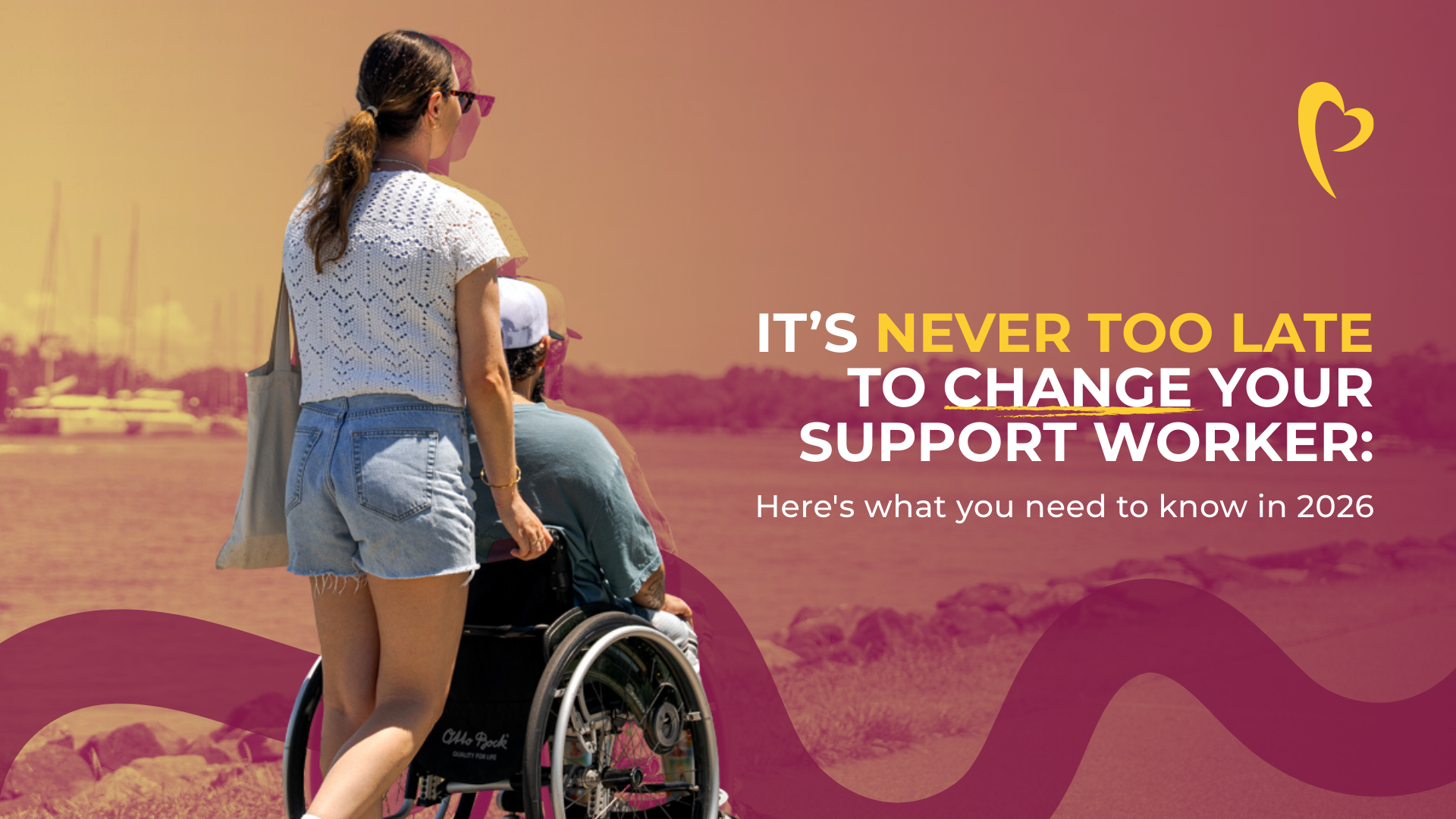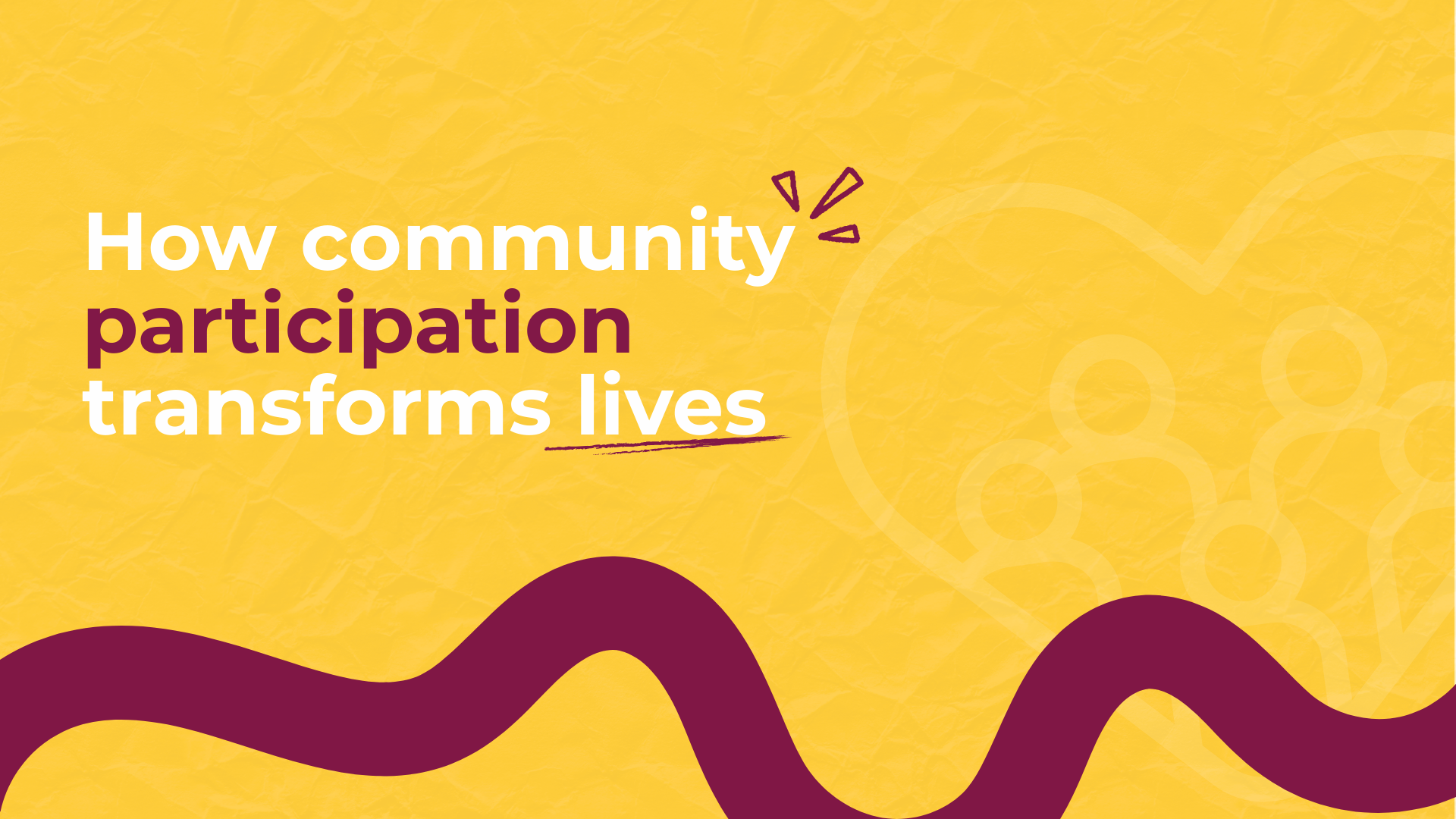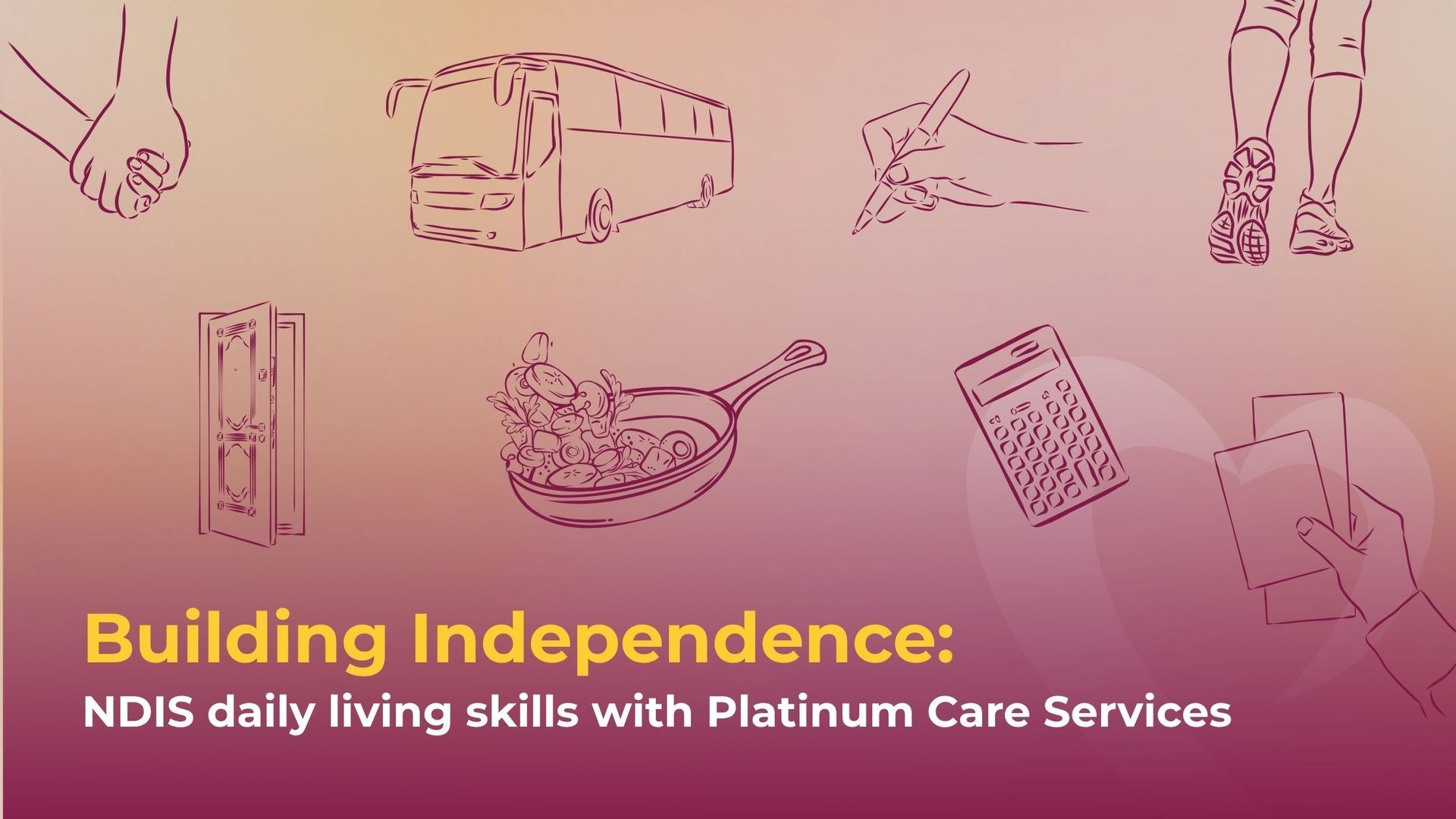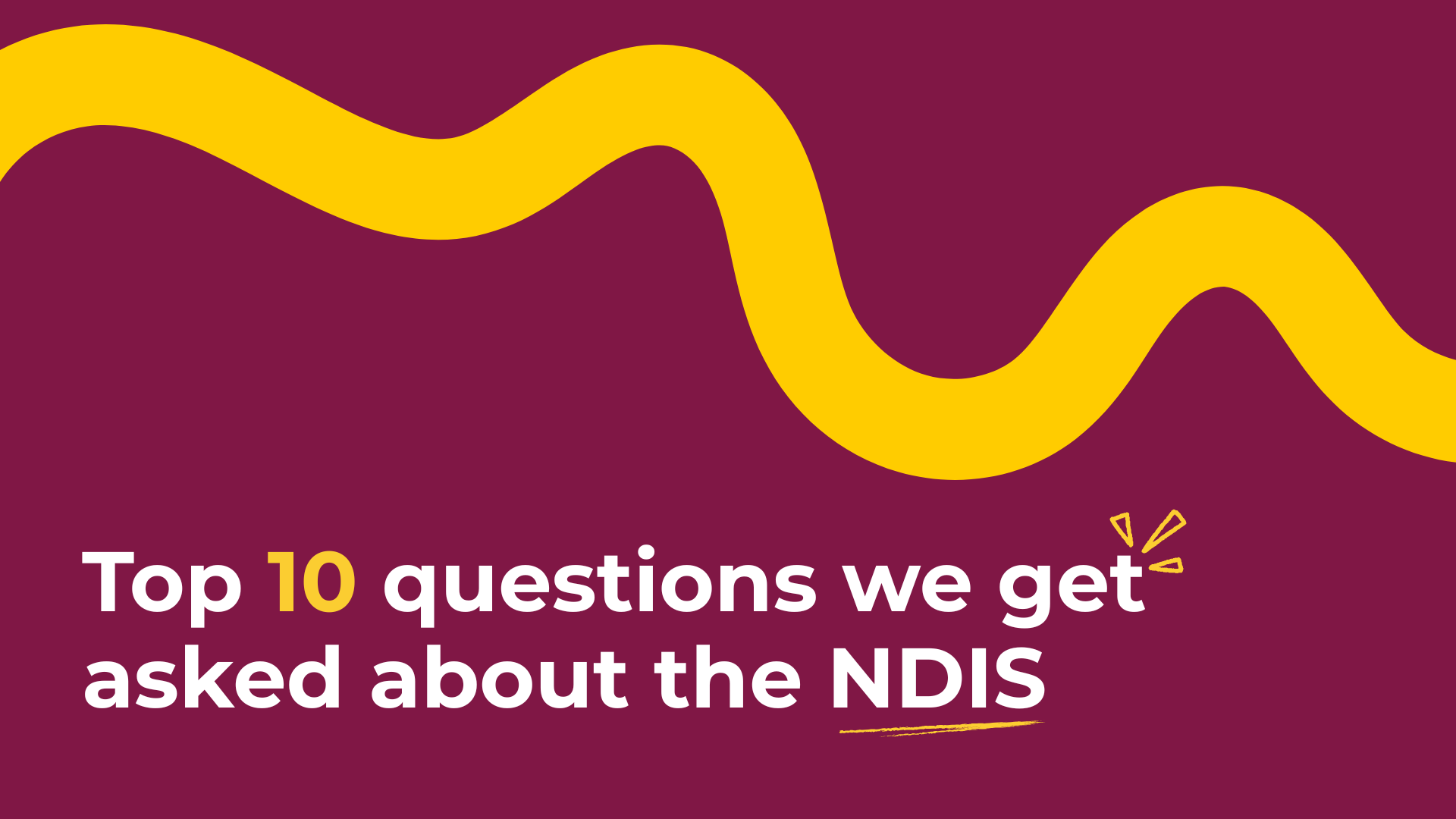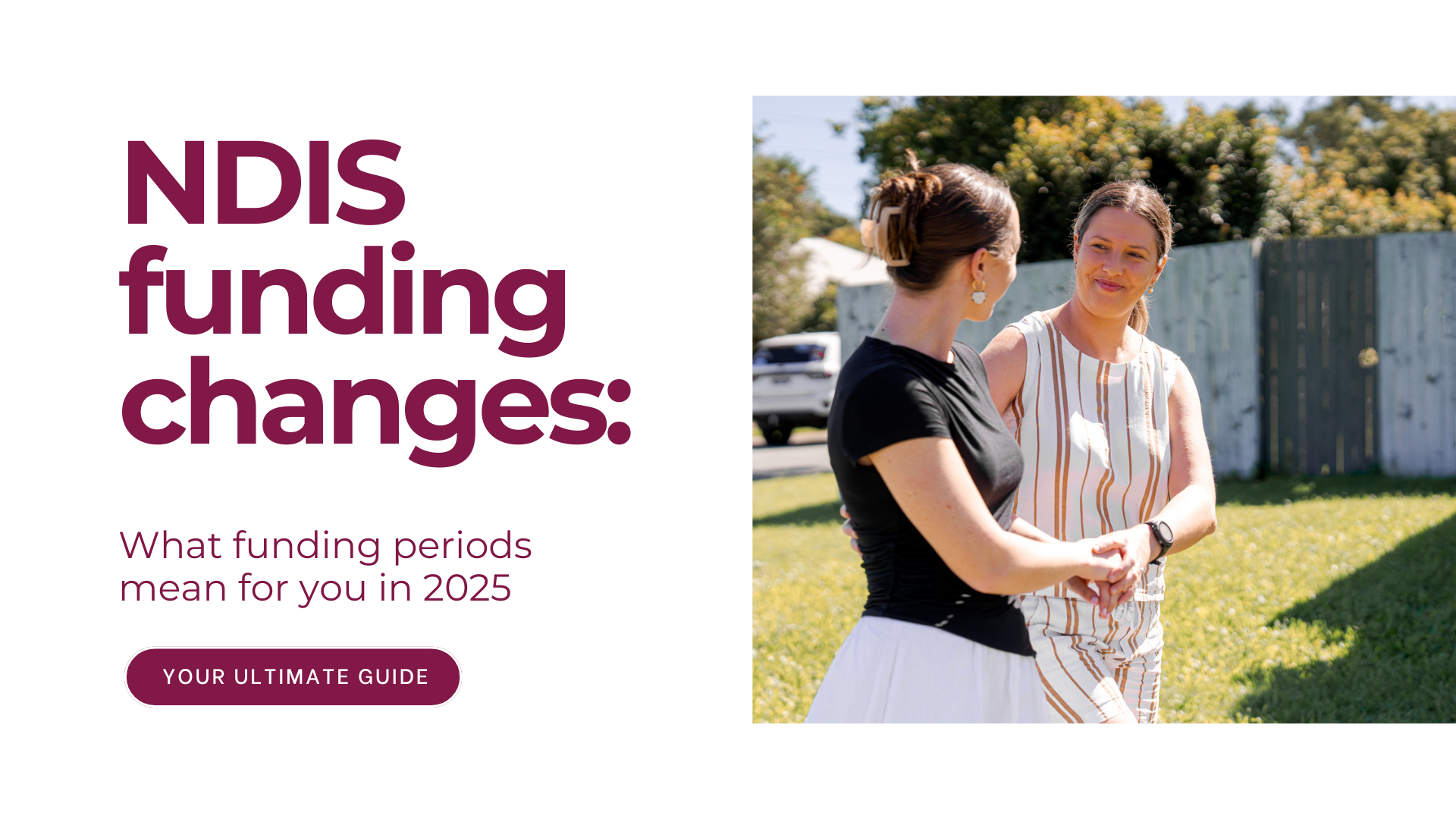How to choose the right NDIS support worker for you?
Your guide to finding the right person to walk alongside your journey.
Finding the right support worker is one of the most important decisions you’ll make as an NDIS participant. The right person doesn’t just provide assistance, they become a trusted partner in your journey to achieving your goals and maintaining your independence.
What is the role of a support worker?
NDIS support workers are skilled professionals who adapt their approach to meet your individual needs and goals.
Depending on your NDIS plan, a support worker may assist you with:
- Personal care - helping with daily activities like bathing, dressing and meal preparation
- Community - supporting you to participate in community activities and social events
- Skill development - assisting you to build independence and develop everyday skills
- Advocacy - helping you understand your rights and speaking up for your best interests
- Goals - working with you to achieve your NDIS plan goals.
Before you start looking, understand what you need
Choosing the right person starts with knowing what is most important to YOU.
Define your goals
Take the time to reflect on what you need:
- What areas do you need support with?
- What are your short and long-term goals?
- What does independence look like for you?
- What is most important to you?
Understand your preferences
Consider your personal preferences and requirements:
- Do you have a preference for male or female support workers?
- Are you more comfortable with someone energetic or calm?
- Do you have specific cultural or language requirements?
Assess your schedule
Map out your current routine and support requirements:
- What days do you need support?
- Are there specific activities that require support?
- Do you need flexibility with your schedule?
Review budget
Understand your funding:
- How many hours of support do you need per week?
- Are there specific funding categories you need to consider?
Essential qualities to look for
Not every support worker will be the right fit for you. Here’s what to look for:
Patience and understanding
It’s important to look for support workers who demonstrate genuine empathy and emotional intelligence. You deserve someone who listens without judgement, and brings a calm, compassionate presence.
Relevant skills and experience
Look for someone who understands your specific disability and shows a willingness to learn about your unique requirements.
Good communication and reliability
Good support is built on trust. You need a support worker who can communicate clearly, arrive on time and will keep you informed about any changes or concerns.
Respect and dignity
The best support workers treat you as an individual with your own preferences and choices. Look for someone who respects your privacy and personal boundaries, while being personable.
Platinum Care’s guide to building a strong relationships
Choosing the right support worker is an investment in your independence and quality of life. Take the time to find someone who not only has the skills and experience you need but also shares your values and supports your goals.
Take your time, ask the right questions, and trust your instincts.
Remember, you have the right to choose who provides your support, and you deserve to work with someone who treats you with dignity, respect, and professionalism.
Need help finding the right match?
At Platinum Care Services, we’re here to help you find the right support worker. Reach out to us below and let’s find your right fit.
